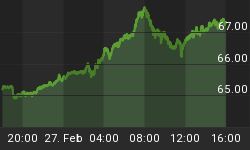Populism is no longer a wave, but a tsunami--and its next target is Brazil.
Dubbed by some as “Brazil’s Donald Trump”, far-right presidential candidate Jair Bolsonaro won 46 percent of the vote in the first round of elections. On October 28, he’ll go up against Workers’ Party candidate Fernando Haddad, who won 29 percent in the first round.
Most believe Bolsonaro’s got this in the bag, and his victory would be a game-changer for Brazil, with markets watching very closely.
That’s because Bolsonaro—the Social Liberal Party’s candidate—is talking about a privatization-focused agenda that has Trump written all over it: He’s promised to withdraw from the UN’s Paris Agreement on climate change, roll back environmental protections and fines, boost mining and oil exploration.
But on tariffs, he is possibly non-Trump: He’s vowed to reduce import tariffs and other trade barriers—sort of.
He’s also vowed to hit out at corruption and … well … in different words, make Brazil great again, with a bit of help from God.
It sounds like a bit of a potential windfall for foreign businesses who are keen to exploit Brazil’s natural resources, but skeptics abound—and many of them are concerned that the economic agenda being pushed here is vague, at best.
But Brazil was ripe for this brand of populism.
The pro-cyclical fiscal policies of former left-wing president Dilma Rousseff led to macroeconomic instability and ended in his impeachment in 2016. That led to a centrist interim government that adopted austerity measures. And like Italy, Brazil is tired of living under austerity, even if it did manage to return to economic growth last year. That growth has been painfully slow, and the austerity measures, dangerously unpopular.
Where it gets confusing particularly is on the international scene.
While Bolsonaro has talked up privatization and vowed to reduce import tariffs. Speaking out of the other side of his mouth, he wants a review of regional trade partnerships and says he would gun for better deals for Brazil.
Related; Ford Continues To Struggle As Trade War Escalates
And while much of his noise has sounded tantalizing for foreign investors, this does not: Bolsonaro has called for more restrictions on foreign investment in strategic sectors—that means energy (think: Brazil’s lucrative pre-salt oil resources).
In short, he promises to “break the system”, which isn’t always a cue for investors to jump on board. And at home, it’s having a significant polarizing effect, much as Trump has polarized the U.S.
Despite protests in the streets that have been described as in the “hundreds”, surveyors give Bolsonaro the advantage, with Datafolha on Wednesday putting him at 58 percent, compared to Haddad’s expected 42 percent.
As far as markets are concerned, the jury is still out deliberating.
Brazilian markets soared last week on Bolsonaro’s free-market reform promises. That’s a huge deal because this is the biggest economy in Latin America, and many would like to see an end to the protectionism.
But this is where critics come out of the woodwork and where red flags over the would-be president’s agenda start waving noticeably.
On Tuesday, Bolsonaro came out with a statement that the core business of state-run oil giant Petrobras would not be part of the free-market reform plan—nor would its electricity generation operations.
So, investors will argue, it’s not much of a privatization agenda, or a free-market reform agenda, if the biggest gem in the portfolio isn’t included.
By Michael Kern for Safehaven.com
More Top Reads From Safehaven.com:
















